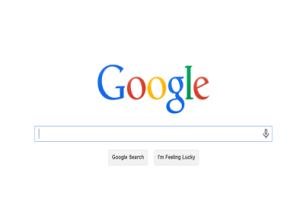The Court of Justice of the European Union recently made international headlines by backing “the right to be forgotten” and ordering Google Spain to take steps toward allowing Europeans the right to remove personal information that has become outdated or irrelevant from search providers, most notably Google.
The court’s decision came by way of an appeal from Mario Costeja González, who was upset to find auction notices relating to his 1998 bankruptcy (posted in the Spanish newspaper La Vanguardia) on Google. González argued that news relating to his financial bankruptcy should no longer be linked to his name in Internet searches. The court agreed, and ruled that González’s privacy rights override “the interest of the general public in having access to that information upon a search relating to [González’s] name.”
As a result, the ruling now allows individuals to control their digital footprint and play more of an active role in censoring what information users can retrieve about them in a search. In order to comply with this request, Google has created a “Search Removal Request” form that allows individuals to petition Google to remove links. In the form itself, Google states it will evaluate the request and look at whether the links “include outdated information about you, as well as whether there’s a public interest in the information- for example information about financial scams, professional malpractice, criminal convictions, or public conduct of government officials.” While not completely deleting the offending materials, the ruling allows users to block web crawlers from retrieving the material, which makes it very difficult for a user to be aware of, much less find, the offending link on their own. It would require the individual to have advance knowledge of the material and where the original source is hosted (including in some cases, the URL itself).
While the ECJ ruling allows users to control (and censor) their digital selves, these changes have broader implications for future historians. The ruling has the potential to make it more difficult for historians to access the totality of information on a research subject, particularly as more public institutions are being mandated to produce born-digital materials. What happens if the only format these records exist in is digital and a search engine can no longer index the materials? Do we really want to be prohibited from accessing divorce records, bankruptcy notes, and arrest records (just to name a few)? Or, as I asked in a previous Perspectives on History column, should individual privacy always supersede the future needs of historians? And lastly, how will Google define a “public interest” in evaluating what information can and will not be accessible, and does that interest include the needs of historians?
It is unclear how this ruling will be carried out throughout European countries. In the weeks after the ruling, Google has been inundated with thousands of takedown requests, both by European citizens and from users outside of European jurisdiction seeking to censor materials that are indexed on European search engines. I encourage historians to watch this issue as it takes shape across Europe, and sound off in the comments below.
This post first appeared on AHA Today.
Tags: AHA Today Digital History
Comment
Please read our commenting and letters policy before submitting.






